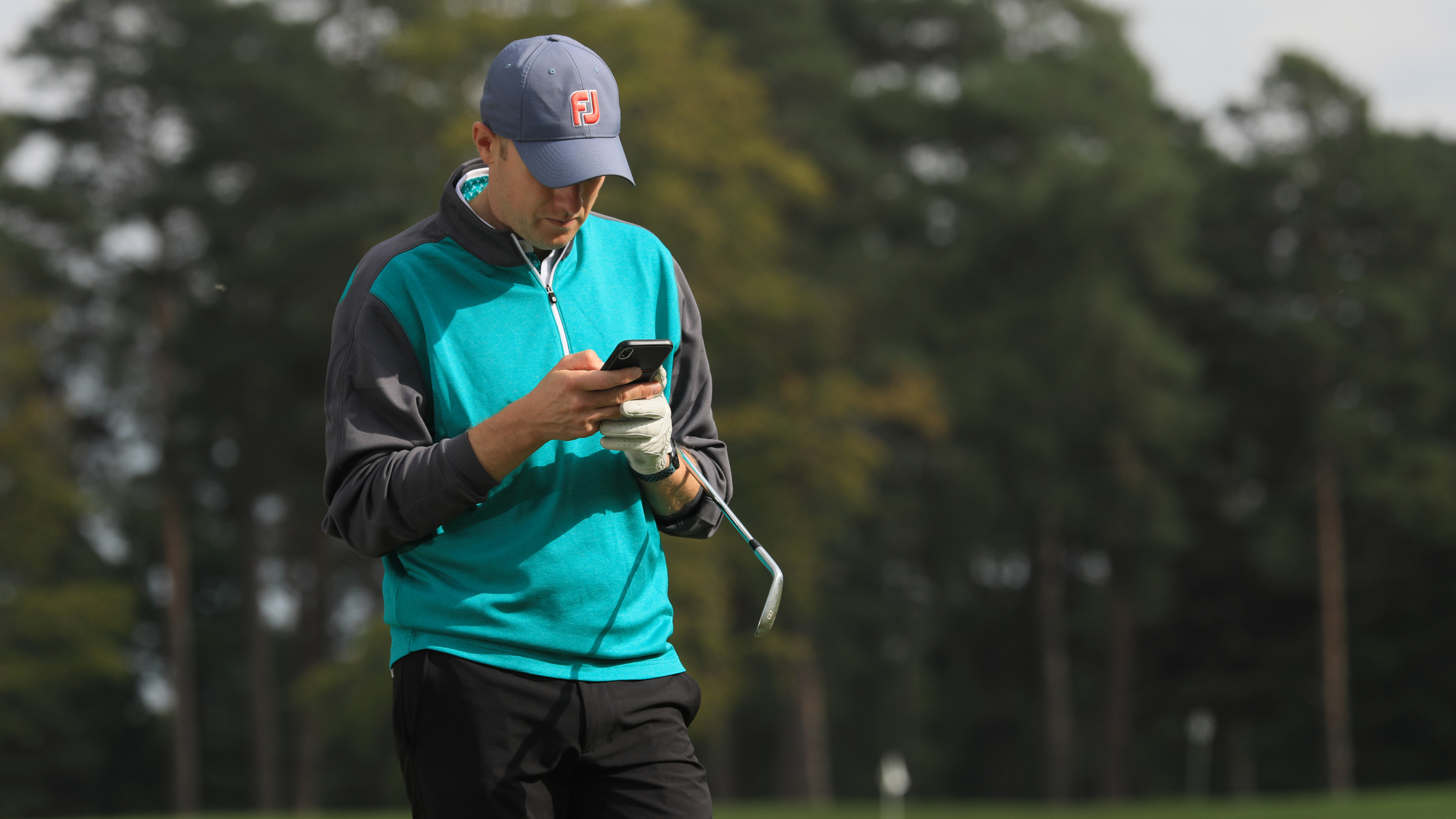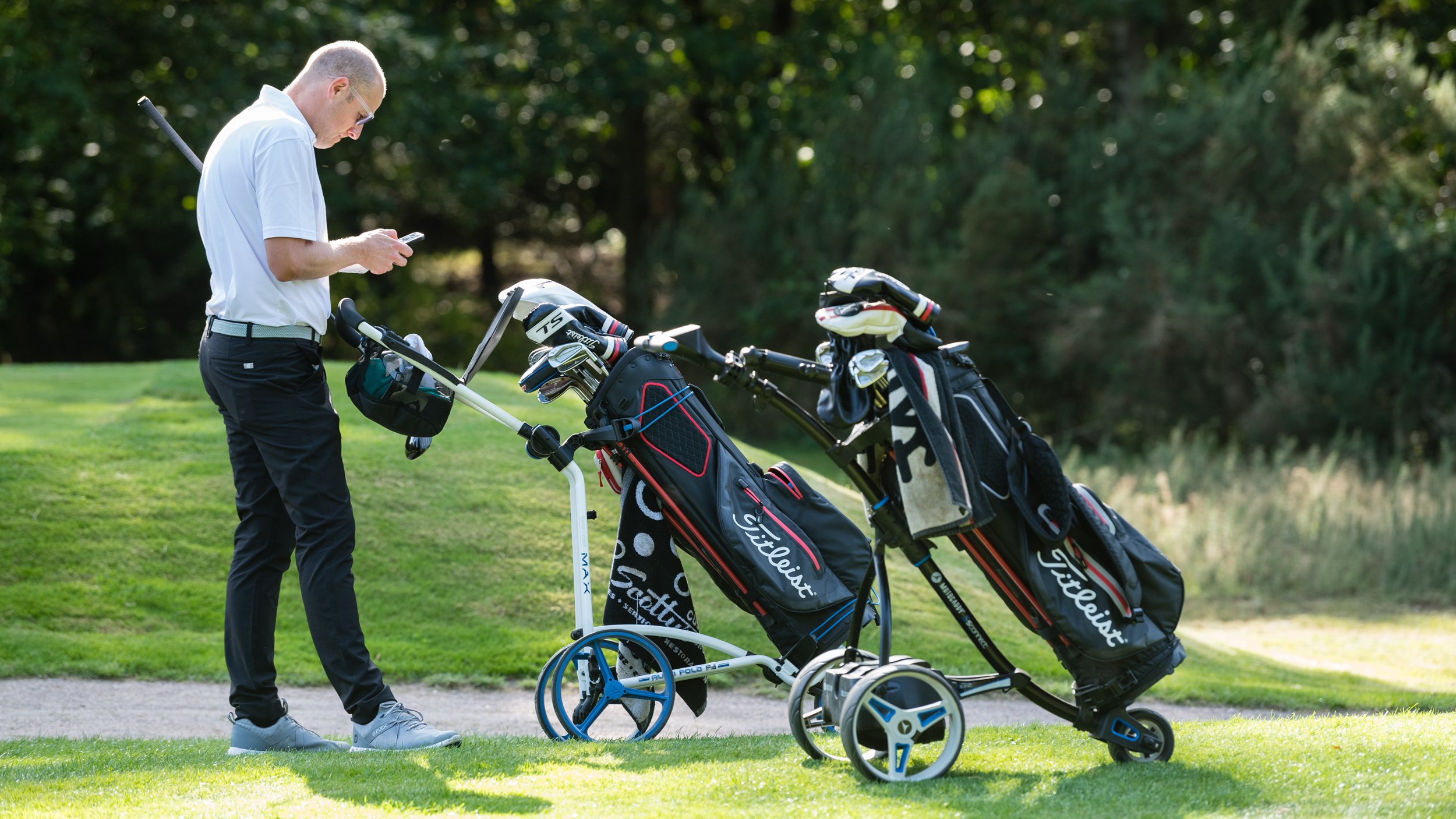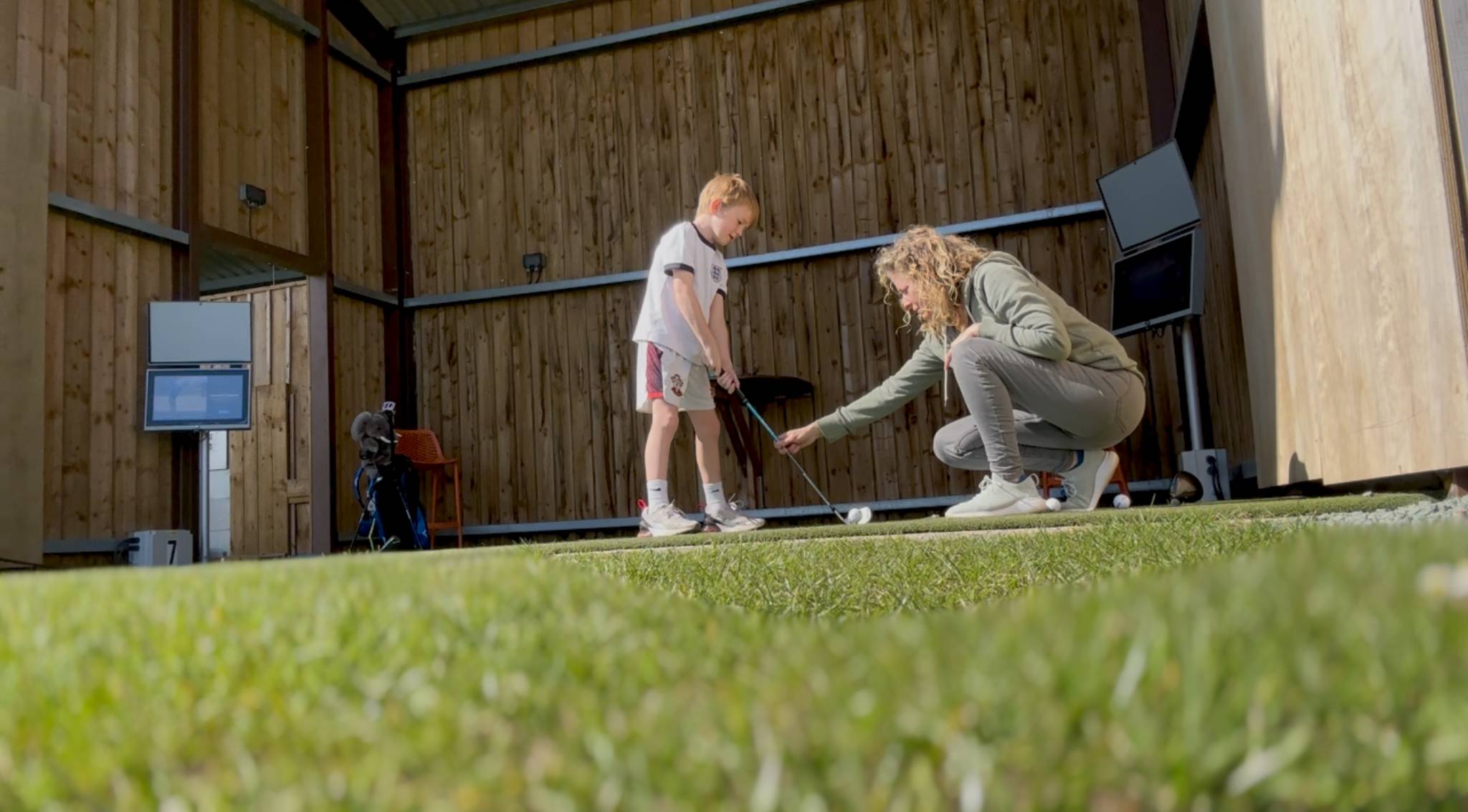The Pros And Cons Of Golf's Move To Digital
Golf has moved swiftly towards digital solutions for booking and score entry. It seems like progress but there are hurdles to overcome…


In this increasingly digital world, the expectation is that everyone is savvy with all things tech – that we all long to embrace apps and will be eternally grateful for any online solution.
In many and maybe even most instances, the internet and smart devices have simplified our lives, given us information at our fingertips, the capacity to buy and sell goods with the touch of a button, to make bookings, to plan, organise and streamline everyday living.
But technology has limitations – it occasionally fails and, because it’s replaced humans in many cases, when it does fail, there’s often no back-up. When digital check-in systems at British Airways go wrong, pandemonium ensues at Heathrow because the skeleton staff can’t cope. When online banking crashes, the helpline is overrun. Digital solutions are brilliant when they work, not so good when they don’t.
Since the introduction of the World Handicap System (WHS) and, spurred on by the pandemic, golf has rushed towards digital booking and score entry systems. On the face of it these are the way forward, but there are a few reasons why they don’t suit everybody. Here we consider the pros and cons of golf’s digital revolution.
Pro - An Equitable System
In the olden days of golf, the booking sheet at most clubs was managed by the professional’s shop (or perhaps a starter at more prestigious venues.) You made a phone call or, it seems incredible today, but you may have even popped in to speak to somebody face to face to book a time. The problem with the old system was that the start sheet began to look all too predictable each week – members bagged the same time every Saturday morning, either by re-booking as they went to check in or by making sure a tame member of staff kept their slot just for them.
New online booking systems mean every member has the same chance, and right, to take any time that’s available to members on the booking sheet. It’s a much fairer way of doing things – far less of a closed shop.
Con – Fastest Finger First Shootout
The battle to book times has changed. The aim is no longer to dominate and monopolise, now it’s to win the shootout on your smart device or keyboard. The tee sheet for a given day will open at a set time and members will be poised to strike. If you’re not on the case at the exact moment, you might find all the times are snaffled before you have a chance to log in.
Get the Golf Monthly Newsletter
Subscribe to the Golf Monthly newsletter to stay up to date with all the latest tour news, equipment news, reviews, head-to-heads and buyer’s guides from our team of experienced experts.
Often people book times on spec, not even certain they’ll be able to play – they just want to have the option. At many clubs, full tee sheets start to feature gaps as the day approaches and people who made bookings a week or two earlier realise they can’t make it. By that time, those who missed out originally have made other plans and the times go begging.
Additionally, there are still members at most clubs who don’t use smart phones or the internet – They tend to miss out as, by the time they can call up to book directly, all the times have been taken.
Pro – Less paperwork

When it comes to score entry, entering scores on a smart device should streamline processes for club administrators. There are no scorecards to deal with (also an environmental benefit), there’s no checking of unreadable scores and ineligible scrawls, sign-in is easier, there’s an in-play leaderboard and it’s easier to produce the final results, there are automatic handicap adjustments, notifications on club events… there are many positives to be had.
Con – Not Quite so streamlined
But at the average golf club, a good percentage of the members are not quite as clued up on tech as the app developer who produced the score entry system. Since app-based score entry arrived, the professional or administrator at many clubs has found themselves dedicating hours of their day to educating and assisting members to use the technology. The idea is good but the reality of teaching the senior section how to log-in, select the right tees, right tournament etc… is a little less straightforward.
Many clubs (including the author’s) have chosen this year to go back to a slightly simpler version that doesn’t require the use of smart devices. We check in/register at a terminal in the pro shop, mark our cards in the good old-fashioned method, writing our playing partner’s score down with a pencil, then after all is agreed, we enter our own score at either the terminal in the shop or another situated in the clubhouse. It’s still a digital system but it doesn’t require the individual to have (or be able) to use the necessary technology on their own phone. That seems more equitable to me – Not everyone wants to fiddle with their phone all the way round the course.
Pro – General Play at will

The apps that allow us to enter WHS General Play scores mean we can travel to any course around the country and register to return a General Play score that will count towards our handicap. This is a great addition for golf and one that really allows the WHS to function as it should. It’s simple and straightforward to select the course you’re playing, select the tees and enter your score. The more General Play scores, the more reflective your WHS handicap will be of your current playing ability. It also gives you something else to play for outside of competition.
Con – General Play at Will
Golf is a game of integrity and we like think all golfers play by the rules, all the time. But let’s face it, we’ve all had our doubts about the odd thing we’ve seen over our years in golf. General Play scoring via mobile app is undoubtedly open to abuse – Playing with pals outside competition… good scores coming in… It’s inevitable that suspicions will be raised every now and then. At my club this year, if we’re doing a General Play score, we have to sign in at the pro-shop terminal as per a comp – a clear and definite pre-registering, we then have to input our score in that terminal or the one in the clubhouse and put a signed card in the scorecard box – that takes any doubt out of the process and I think it’s a good idea.
Technology in golf is improving the playing experience and simplifying processes for players and administrators. But there are elements of the systems available that need some tweaking and a degree of flexibility to accommodate the less tech-savvy and ensure everyone is playing by the book.

Fergus is Golf Monthly's resident expert on the history of the game and has written extensively on that subject. He has also worked with Golf Monthly to produce a podcast series. Called 18 Majors: The Golf History Show it offers new and in-depth perspectives on some of the most important moments in golf's long history. You can find all the details about it here.
He is a golf obsessive and 1-handicapper. Growing up in the North East of Scotland, golf runs through his veins and his passion for the sport was bolstered during his time at St Andrews university studying history. He went on to earn a post graduate diploma from the London School of Journalism. Fergus has worked for Golf Monthly since 2004 and has written two books on the game; "Great Golf Debates" together with Jezz Ellwood of Golf Monthly and the history section of "The Ultimate Golf Book" together with Neil Tappin , also of Golf Monthly.
Fergus once shanked a ball from just over Granny Clark's Wynd on the 18th of the Old Course that struck the St Andrews Golf Club and rebounded into the Valley of Sin, from where he saved par. Who says there's no golfing god?
-
 I’m A PGA Golf Coach - Here's Why I Made Sure My Kids Can Play Golf
I’m A PGA Golf Coach - Here's Why I Made Sure My Kids Can Play GolfFrom life lessons to lifelong friendships, Top 50 Coach Katie Dawkins on what golf can give your children
By Katie Dawkins
-
 Rory McIlroy's Masters Win More Popular Than Tiger Woods In 2019 As Incredible TV Ratings Released
Rory McIlroy's Masters Win More Popular Than Tiger Woods In 2019 As Incredible TV Ratings ReleasedMcIlroy's role as golf's primary needle-mover continued on Sunday as the Northern Irishman's fifth Major attracted an awful lot of eyeballs in the USA...
By Jonny Leighfield